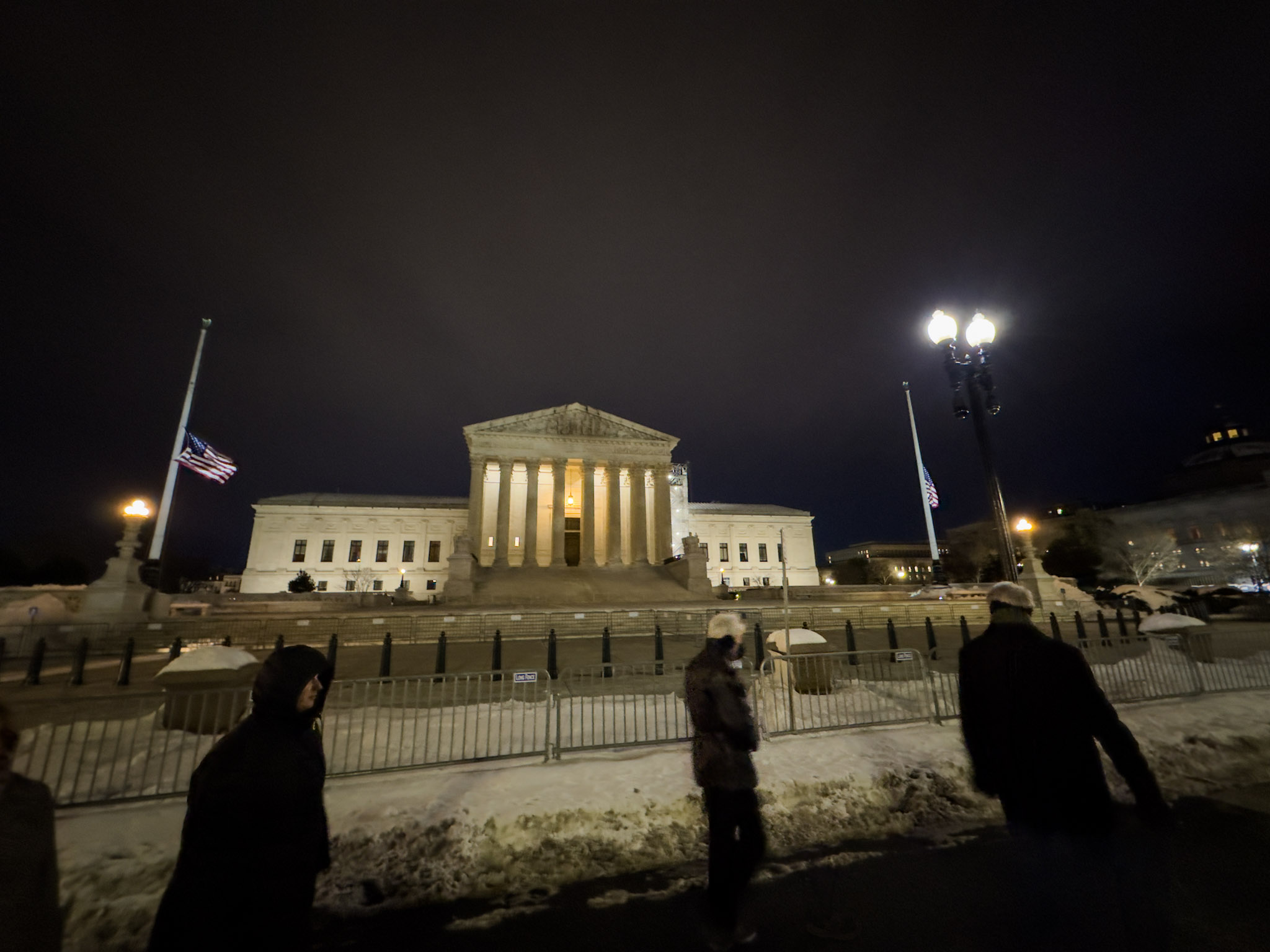Indianz.Com > News > Department of Justice holds tribal consultations on U.S. Supreme Court decision

Department of Justice holds tribal consultations on U.S. Supreme Court decision
Tuesday, January 7, 2025
Indianz.Com
The Department of Justice (DOJ) is kicking off a series of consultation sessions to address a U.S. Supreme Court decision seen as detrimental to tribal sovereignty.
In June 2022, the Supreme Court held that states can prosecute crimes in Indian Country despite a lack of tribal consent and a lack of Congressional authorization. The decision in Oklahoma v. Castro-Huerta, which was reached by a vote of 5 to 4, upset more than a century of settled policy and practice.
As a result, DOJ is considering whether to support legislation that would address Castro-Huerta. Tribes are being asked to provide their views at consultation sessions on January 10, February 5 and February 6.
“Congress, exercising its plenary power over Indian affairs, could address this decision by legislation,” a Dear Tribal Leader Letter, dated January 3, reads. “Unless Congress acts, however, many States may now generally exercise jurisdiction to prosecute crimes committed by non-Indians against Indians in Indian country without any authorization from Congress or any consent from the governing Tribal nations.”
U.S. DEPARTMENT OF JUSTICE TRIBAL CONSULTATION ON POSSIBLE LEGISLATION TO ADDRESS THE SUPREME COURT’S DECISION IN OKLAHOMA V. CASTRO-HUERTA
A framing paper attached to the Dear Tribal Leader Letter includes two possible proposals to address Castro-Huerta. One was drafted by DOJ while the other was drafted by the National Congress of American Indians.
“Both proposals in Appendix A make clear that States lack jurisdiction over crimes within Indian country committed by or against Indians, unless expressly authorized by federal statute,” the framing paper reads.
The tribal consultations are being held virtually, with the first session being rescheduled to account for the National Day of Mourning in honor of the late former U.S president Jimmy Carter. Written comments can also be submitted by to the Office of Tribal Justice at DOJ by March 6.
The sessions come amid the change in the presidential administration, with Donald Trump, a Republican, taking office on January 20. He has announced Pam Bondi, a former attorney general of Florida, as his pick to lead DOJ. “For too long, the partisan Department of Justice has been weaponized against me and other Republicans – Not anymore,” president-elect Trump said in a November 21 announcement that highlighted drug trafficking as an issue. “Pam will refocus the DOJ to its intended purpose of fighting Crime, and Making America Safe Again,” Trump said. Oklahoma v. Castro-Huerta resulted from efforts by the state of Oklahoma to weaken tribal rights following the Supreme Court’s historic decision in a case known as McGirt. The Republican governor of Oklahoma, Kevin Stitt, has portrayed McGirt as favorable to criminals in Indian Country despite a lack of substantial evidence.Huge crowds are lined up outside the U.S. Capitol, braving freezing temperatures to pay their respects to the late former U.S. president Jimmy Carter, who died on December 29, 2024, at the age of 100. #JimmyCarter #DC pic.twitter.com/4EQKtzRA0Q
— indianz.com (@indianz) January 8, 2025
Search
Filed Under
Tags
More Headlines
Native America Calling: Native in the Spotlight with Elaine Miles
Native America Calling: Gearing yourself up for 2026
Native America Calling: Lumbee Nation secures its sovereign status
Chuck Hoskin: Cherokee Nation builds on tradition with technology
Native America Calling: The Year in Native News
Native America Calling: Native music in 2025
Native America Calling: Amid Greenland’s independence push, Denmark accounts for colonial blunders
Senate Committee on Indian Affairs sets business meeting and hearing
Native America Calling: Saving historic architecture and other important places
VIDEO: H.R.2400, the Pit River Land Transfer Act of 2025
VIDEO: H.R.3620, the Southcentral Foundation Land Transfer Act of 2025
VIDEO: H.R.2815, the Cape Fox Land Entitlement Finalization Act of 2025
AUDIO: H.R.2400, the Pit River Land Transfer Act of 2025
AUDIO: H.R.3620, the Southcentral Foundation Land Transfer Act of 2025
AUDIO: H.R.2815, the Cape Fox Land Entitlement Finalization Act of 2025
More Headlines
Native America Calling: Gearing yourself up for 2026
Native America Calling: Lumbee Nation secures its sovereign status
Chuck Hoskin: Cherokee Nation builds on tradition with technology
Native America Calling: The Year in Native News
Native America Calling: Native music in 2025
Native America Calling: Amid Greenland’s independence push, Denmark accounts for colonial blunders
Senate Committee on Indian Affairs sets business meeting and hearing
Native America Calling: Saving historic architecture and other important places
VIDEO: H.R.2400, the Pit River Land Transfer Act of 2025
VIDEO: H.R.3620, the Southcentral Foundation Land Transfer Act of 2025
VIDEO: H.R.2815, the Cape Fox Land Entitlement Finalization Act of 2025
AUDIO: H.R.2400, the Pit River Land Transfer Act of 2025
AUDIO: H.R.3620, the Southcentral Foundation Land Transfer Act of 2025
AUDIO: H.R.2815, the Cape Fox Land Entitlement Finalization Act of 2025
More Headlines
